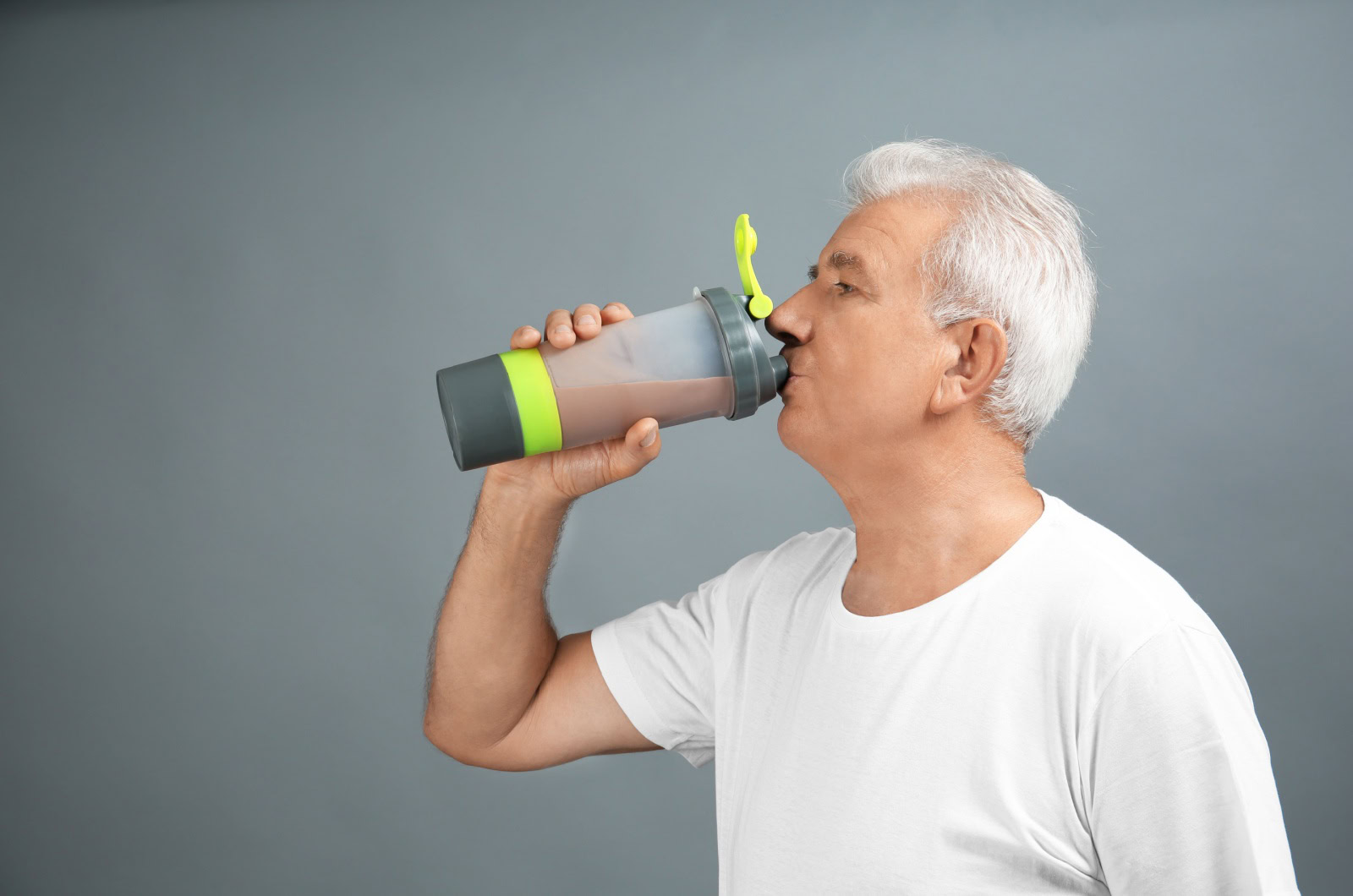What Should I Eat to Retain Muscle After 60?
- Posted on
- By Mira Vie Senior Living

Retaining muscle as you age helps you stay healthy, mobile, and independent. Age-related muscle loss can lead to limitations in strength and mobility, increasing the risk of falls and health problems.
However, you can retain muscle after 60 by combining physical activity with a balanced diet rich in protein and other nutrients. Regular exercise can also help build muscle mass.
Why Do We Lose Muscles with Age?
Age-related muscle loss, called sarcopenia, is normal. We start to naturally lose muscle after age 30, and after 60, the rate of decline is even higher. Lack of physical activity, health conditions, hormonal changes, and other natural changes that come with age contribute to muscle loss.
Sarcopenia can make everyday activities, like climbing stairs, walking, going from seated to standing or carrying groceries, increasingly difficult.
However, you can take proactive steps to retain and even rebuild muscle as you age.
The Role of Nutrition in Muscle Retention
Nutrition plays a crucial role in keeping your muscles strong and healthy. Proteins, vitamins, and minerals are essential building blocks for muscle tissue. Protein, in particular, is vital for repairing and building muscle fibers.
Think of vitamins and minerals as the helpers that make the whole muscle-building process go smoothly. These nutrients can significantly impact your muscle mass and overall health as you age.
Foods to Eat to Retain Muscle After 60
Age and poor nutrition are factors that can lead to muscle loss. Here are foods to eat to help retain muscle after 60.
Protein
Protein is the superstar nutrient when it comes to muscle retention. When the body gets protein, it signals the muscles to build and strengthen by breaking down the protein into amino acids (the building blocks of protein).
However, the muscles become more resistant to the signal over time. For this reason, older adults need to consume more protein.
Incorporate high-quality protein sources into your diet like:
- Lean meats
- Fish
- Eggs
- Dairy
- Beans
- Lentils
Vitamins & Minerals
Vitamin D helps with muscle function and can be found in:
- Fatty fish
- Fortified milk
- Eggs
Calcium, which is critical for muscle contraction, can be found in:
- Dairy products
- Leafy greens
- Fortified plant milk
To help maintain muscle integrity and muscle health, incorporate foods rich in magnesium, such as:
- Nuts
- Seeds
- Whole grains
Recommended Diet for Muscle Retention
Here is a sample meal plan with foods packed with protein, vitamins, and minerals to give you an idea of a balanced diet and help you get started on the path to muscle retention.
Your breakfast can include:
- Scrambled eggs with spinach and tomatoes
- A protein powder shake or a protein drink
- One cup of skimmed milk
Lunch can include:
- Grilled chicken
- Mixed greens
- Avocado
- Quinoa
- Mixed berries
Dinner can include:
- Baked salmon
- Steamed broccoli
- Sweet potatoes
- A mixed greens salad
- One cup of cooked beans
- A glass of skimmed milk
Healthy snacks in between meals can include:
- Greek yogurt
- Almonds
- Nuts
- Carrot sticks with hummus
For seniors, many senior living communities will incorporate nutritious foods into their meal plans to help promote muscle strength and overall health. Chef-prepared meals also make it easier to make sure you receive the nutrition you need.

The Importance of Hydration
Water is often overlooked but is incredibly vital for muscle function. Dehydration can lead to muscle cramps and decreased muscle performance. Aim to drink about eight 8-ounce glasses of water throughout the day, but listen to your body—if you’re thirsty, drink up!
Additional Lifestyle Factors for Muscle Retention After 60
Apart from age and poor nutrition, other factors, such as lack of physical activity, poor sleep, and stress, can affect muscle function.
Regular Exercise
Exercise is essential for muscle retention. Focus on strength and resistance training exercises, like lifting weights or using resistance bands, at least 2 days a week. You should also incorporate cardiovascular exercise, like walking or swimming, to keep your heart healthy and improve overall well-being.
Quality Sleep
Lack of sleep can increase your risk of muscle mass loss and function. Your body needs proper rest to repair and build muscle tissue. Aim for 7 to 8 hours of quality sleep each night to give your muscles the best chance to recover and grow.
Stress Management
Chronic stress can negatively impact your muscle health. Practice stress-relieving activities like meditation, yoga, or deep breathing exercises to keep stress levels in check.
Health & Wellness in Senior Living
Retaining muscle after 60 is entirely achievable with a balanced diet, proper hydration, regular exercise, quality sleep, and stress management. Small, sustainable changes can improve your muscle health and overall well-being.
For additional health and wellness support, contact us today to learn about our communities in New Jersey. Our senior living options provide nutritious meals, physical activities, and lifestyle programs designed to help you maintain your health and vitality.
Related Articles

How to Build a Fulfilling Morning Routine for Seniors
Key Takeaways A consistent morning routine helps establish a sense of purpose and supports overall